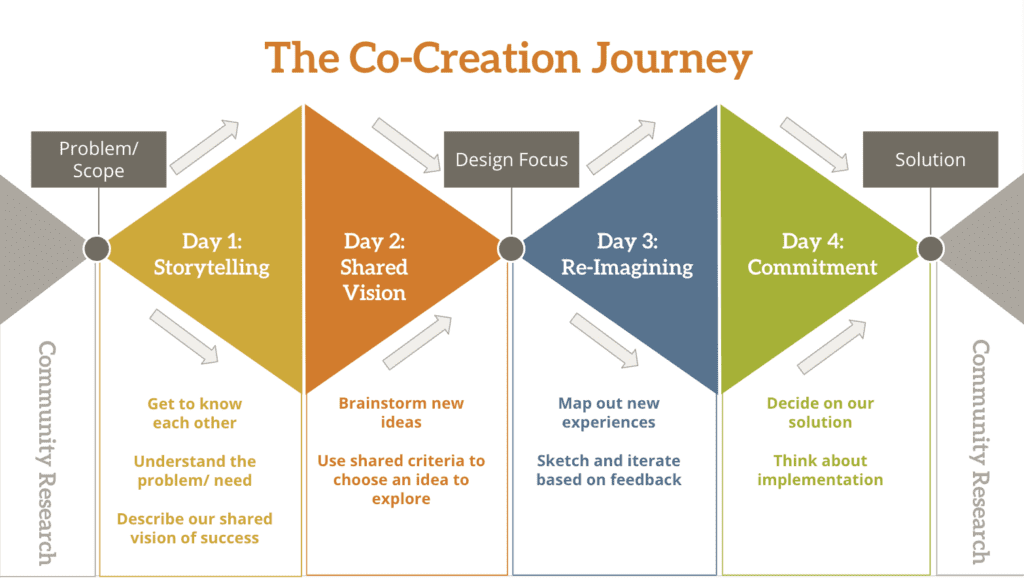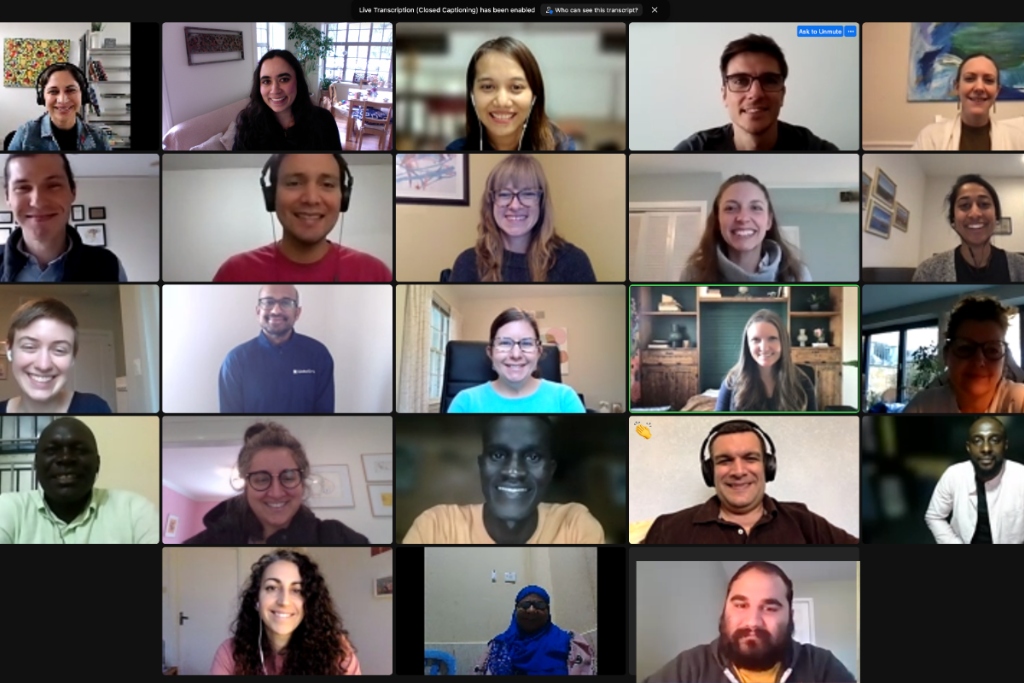Co-creation has changed what it means to become a GlobalGiving partner—for the better.
In 2021, we made the abrupt decision to end a program that was successful in many ways, but it wasn’t helping us achieve our mission in an inclusive enough way.
Rather than redesigning a replacement program for onboarding nonprofit partners on our own, we doubled down on our commitments to becoming more community led and to diversity, equity, and inclusion. So we decided to co-create a new program with our nonprofit partners and prospective partners.
We dug into the Human-Centered Design toolbox to plan our co-creation workshops. And although sharing power wasn’t a new concept for GlobalGiving, we still needed to figure out how to fully integrate the co-creation version of power-sharing into how we operated as an organization.
“I’ll be honest—I was nervous,” Liz Radzicki, Senior Manager of Experience Design at GlobalGiving shared. “This was a relatively new process for our organization and an intensive one. Onboarding new partners was a high-stakes, high-profile undertaking. We were building the plane during takeoff. But it also felt critical to do it this way, so we embraced our role as learners and beginners and jumped in.”
The co-creation workshops consisted of 16 hours over four days.
“It is all about expanding understanding with all these diverse perspectives and lived experiences, and then coming together around a shared understanding of the problem and a shared purpose and vision,” Liz said.
Based on that, we generated new ideas and explored potential solutions. Then, we evaluated and decided together how to move forward.

“It’s joyful! Beautifully messy! Exhausting and purposeful,” Megan DeSisti, Manager of Global Community at GlobalGiving, shared. “But it mostly looks like this: a group of people coming together from all over the world to share their stories, explore new ideas, and create new solutions.”

We made sure the co-creation workshops were inclusive of people from diverse backgrounds (time zones, internet access, geographies, languages, and technology skills).
Gladys Teos, owner of ENES Translations and now a GlobalGiving partner, supported the co-creation with translation services. She described these accommodations as “creating the condition for true co-creation, so participants could communicate and listen freely, sharing in the language of their hearts, and truly understanding and building together.”
One participant, Yolanda Nilasari of GlobalGiving partner Yayasan Usaha Mulia, had reservations about joining the co-creation workshops.
“I was worried I wouldn’t have anything to share or contribute based on my GlobalGiving experience,” Yolanda said. “Language was also another thing that made me nervous. I was worried about my English.”
Being based in Indonesia, Yolanda often isn’t invited to events because of the time difference. But she was able to join the co-creation sessions.
“Despite my doubts, I was so curious to learn more about GlobalGiving and meet other co-creator fellows,” Yolanda reflected. “I am glad that I bravely joined.”
And the outcome of this co-creation process? A new program that emphasizes GlobalGiving’s responsibility to train and connect nonprofit leaders before they even consider fundraising on GlobalGiving.
Pathway to GlobalGiving helps nonprofit leaders get fundraising-ready, decide whether GlobalGiving is the right fundraising partner for them, and connect with amazing change leaders around the world.
After our first two pilots of the new program, we’re seeing results on our key indicators.
The main problem that we were trying to solve with the Pathway program was the inequity in who was accessing and experiencing the potential value of the GlobalGiving community. We removed barriers by listening to nonprofit leaders and following their vision and values.
“We opened up the value of GlobalGiving to a new community of potential partners—partners traditionally excluded from aid and philanthropy.” — Liz Radzicki
We also saw some incredible unexpected outcomes from the co-creation process. New relationships formed, participants employed new programmatic strategies, and some started using co-creation in their own work:
“Co-creation has become an important skill set for developing programs with the homeless young people we work with,” said Johanssen Obanda, a leader of the Kenya-based nonprofit Jabulani Youths for Transformation. “If you listen to them, really listen, you realize they have stuff within them; skills and brilliant ideas.”
The co-creation process is still new for GlobalGiving, and it’s not without its challenges. The team is wrestling with how they can share power in a way that is responsive to nonprofit needs and desires as well as responsible for the sustainability of the organization.
GlobalGiving offers a free Design Brief template as a resource to help you think through whether co-creation might be a good fit for your challenge, and what it might look like to take it on.
See whether co-creation is right for you.
Featured Photo: Support Low Income Women Through Cooperatives by Kadin Emegini Degerlendirme VakfiFind exactly what you're looking for in our Learn Library by searching for specific words or phrases related to the content you need.